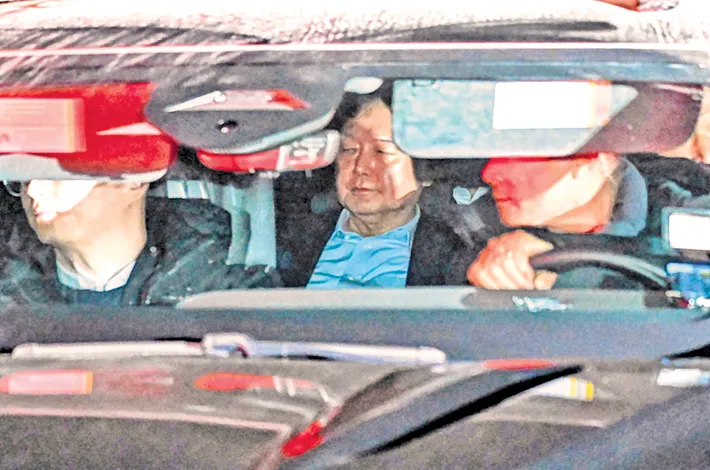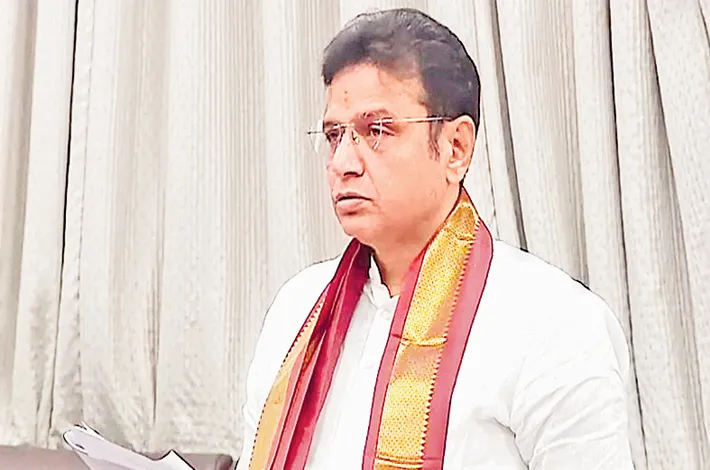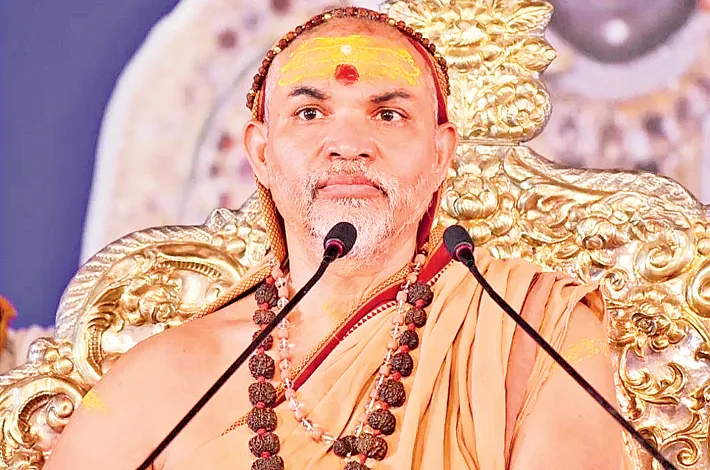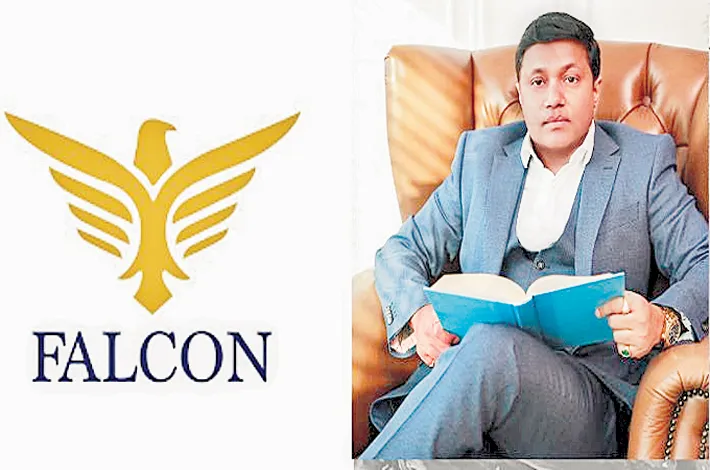South Korea Prez Yoon arrested
16-01-2025 12:00:00 AM

Pre-dawn operation | Investigators scale walls, cut barbed wire to enter presidential compound to reach impeached leader after stand off with latter’s security men
A vehicle carrying impeached South Korea President Yoon Suk Yeol (C) leaves the building housing the Corruption Investigation Office for High-ranking Officials (CIO) in Gwacheon on Wednesday —AFP
Yoon Suk Yeol has become South Korea's first sitting president to be arrested after investigators scaled barricades and cut through barbed wire to take him into custody. Yoon, 64, is being investigated on charges of insurrection for a failed martial law order on December 3 that plunged the country into turmoil. He has also been impeached by parliament and suspended from office - but will not be removed from his position until the Constitutional Court rules on his impeachment.
Yoon's dramatic arrest on Wednesday, however, brings to an end weeks-long standoff between investigators and his presidential security team. Investigators from the Corruption Investigation Office for High-ranking Officials (CIO) failed to arrest him on January 3 after being locked in a six-hour standoff with his security detail.
But just before dawn on Wednesday, a team of investigators arrived at his residence in central Seoul, armed with ladders to climb over buses blocking its entrance and bolt croppers to cut through the barbed wire. Other officers in the arrest team, which numbered around 1,000, scaled walls and hiked up nearby trails to reach the presidential residence.
After several hours of stand-off at the compound gate between anti-corruption investigators and police officers, on the one hand, and Yoon’s security men, authorities announced that Yoon had been arrested. The arrest was made after weeks of Yoon’s defiance over attempts to question him for imposing martial law last month.
In a video message recorded before he was escorted to the headquarters of the anti-corruption agency, Yoon lamented that the "rule of law has completely collapsed in this country". Yoon's lawyers tried to persuade investigators not to execute the detention warrant, saying the president would voluntarily appear for questioning but the agency declined.
The Corruption Investigation Office for High-Ranking Officials said Yoon was brought into custody about three hours, this time without encountering meaningful resistance.
A series of black SUVs, some equipped with sirens, were seen leaving the presidential compound with police escorts. A vehicle apparently carrying Yoon later arrived at the agency's office in the nearby city of Gwacheon. Investigators said Yoon had remained silent throughout questioning.
What’s next?
Yoon could be held in custody for weeks, possibly even months or longer, according to AP.
The anti-corruption agency, which is leading a joint investigation with the police and the military over whether Yoon’s martial law declaration amounted to an attempted rebellion, has 48 hours to request a
court order for his formal arrest. If it fails to do so, Yoon will be released. If Yoon is formally arrested, investigators can extend his detention to 20 days before transferring the case to public prosecutors for indictment.
If prosecutors indict Yoon on rebellion and abuse of power charges, which are the allegations examined by investigators, he could possibly remain under arrest until the initial court ruling, which is typically made within six months, said Park Sung-bae, an attorney specializing in criminal law.








